Acclaim for PICO IYER s
Tropical Classical
In Tropical Classical, one finds fresh air Iyer is open and curious, humorous and thoughtful.
The New York Times Book Review
Pico Iyers remarkable talent is enough justification for going anywhere in the world he fancies.
Washington Post Book World
Brilliant [Iyer] reflects back at us images from a post-colonial world that is gorgeously complex and stubbornly elusive, yet firmly within his grasp.
The New York Times
A nimble, inquisitive, lyrical author in peak form.
San Francisco Chronicle
Pico Iyer gives his reader a literary swirl composed equally of Indiana Jones-like adventure and Aesopian wisdom.
Denver Post
Pico Iyer practices an agile brand of Zen journalism. Iyer is a gentle variation on Henry Miller.
Boston Globe

PICO IYER
Tropical ClassicalPico Iyer has been a writer for Time, principally of essays, since 1982, and his pieces appear often in Harpers, The New York Review of Books, The New York Times, Sports Illustrated, and many other publications on both sides of the Atlantic and Pacific. He lives as much as possible in Japan.
ALSO BY PICO IYER
Cuba and the Night
Falling Off the Map
The Lady and the Monk
Video Night in Kathmandu
These are Borzoi Books published in
New York by Alfred A. Knopf
 FIRST VINTAGE DEPARTURES EDITION, JULY 1998
FIRST VINTAGE DEPARTURES EDITION, JULY 1998
Copyright 1997 by Pico Iyer
All rights reserved under International and Pan-American Copyright Conventions. Published in the United States by Vintage Books, a division of Random House, Inc., New York, and simultaneously in Canada by Random House of Canada Limited, Toronto. Originally published in hardcover in the United States by Alfred A. Knopf, Inc., New York, in 1997.
Owing to limitations of space, acknowledgments for permission to reprint previously published material may be found on .
The Library of Congress has cataloged the Knopf edition as follows:
Iyer, Pico.
Tropical classical: essays from several directions / by Pico
Iyer.1st ed. p. cm.
I. Title.
PS3559.Y47T76 1997
814.54dc20 96-38578
eISBN: 978-0-307-76465-2
Author photographMark Richards
Random House Web address: www.randomhouse.com
v3.1
For the still points of my turning world
my mother and Hiroko
The sea canes by the cliff flash green and silver;
they were the seraph lances of my faith,
but out of what is lost grows something stronger
that has the rational radiance of stone,
enduring moonlight, further than despair,
strong as the wind, that through dividing canes
brings those we love before us, as they were,
with faults and all, not nobler, just there.
DEREK WALCOTT
CONTENTS
In Praise of Folly: Three Continents by Ruth Prawer Jhabvala
The Web by Andrew Harvey
The Meek Inherit No Earth: Grace Abounding by Maureen Howard
No Fond Return of Love by Barbara Pym
PREFACE
Derek Walcotts poems hymn the constant, melodious effort to reconcile the pomme-arac and casuarinas of his unrecorded home with the cobblestones and pillared houses he learned to love on paper. For me, growing up in Oxford, the son of Indian parents, it often seemed that dialogue was playing itself out in reverse as I tried to matchmake the classical precepts of my upbringing with the tropical palms that came with my inheritance. Later, when we moved to California, I had to forge a different kind of peace, between my new home in the 60s, where anything seemed possible, and my fifteenth-century boarding school in England, where inmates were trained in all the imperial disciplines of stoicism and command; and as I shuttled back and forth, between one world that seemed to ask too much of life and another that seemed to ask too little, I began to feel that both our starriest hopes and our tiniest tics are only as strong as their acknowledgment of the other. Even our deepest convictions, it seemed to me, arise only out of a patient, step-by-step commitment to the details of the day, and only by paying the closest attention to the minutiae of this world could one begin to make out the lineaments of some other. You can see this in the churches of ancient Ethiopia, you can see it in the strand of hair escaping from behind a lovers ear.
The essays you may encounter here, therefore, are all aimed, one way or another, to romance possibility by looking at the everyday, and to undergird faith by taking in irony. I have three or four times as many pieces lying around in my drawer (and had hundreds more before a forest fire destroyed my home and all my files), but I chose these because they seemed to belong together; and though not always my favorites, and not always free of youthful brattiness or ungenerosity, they seemed to point in some of the same directions. They were, I hoped, thoughts on occasions that could profit from one anothers company and even, now and then, throw light on one another and conspire; and I was interested in the way that some of them, though starting from radically different points, seemed to converge on some kind of common ground. The virtue of essays from several directions is, after all, that like other lines inscribed upon a page, they may, in unexpected ways, intersect around the outlines of a face.
I would like to thank some of the many colleagues who worked with me on pieces here, among them the late Ronald Kriss; Richard Duncan, James Kelly, Walter Isaacson, Christopher Porterfield, Anne Hopkins, and Ratu Kamlani; Klara Glowczewska, Gully Wells, and Thomas J. Wallace; Karsten Prager, Jos M. Ferrer III, and George Russell; William Phillips, Jane Uscilka, Alan Ross, Lindsay Duguid, Andrew Sullivan, and Robert B. Silvers; Marge Horvitz and Nelly Bly; and a host of others, whom it would be invidious to single out but who may recognize a few of these cadences and sentences. I would also like to thank some of the people who helped set me up in an enviable position whereby I could write for a living, among them Richard Marius at Harvard University, Timothy Foote at Smithsonian, Ray Cave and Henry Muller at Time, Charles Elliott, Harold Evans, Lynn Nesbit, and Sonny Mehta.
PLACES

Ethiopia: Prayers in the Wilderness

T his is the New Jerusalem, said our guide, a former deacon. These churches were built with the help of angels. Once upon a time, an angel came to King Lalibela and asked him to build a city in the heart of Ethiopia, in rock. This is heaven, he went on, pointing to the divide along which we were standing. As soon as you step here, you have set foot in heaven.


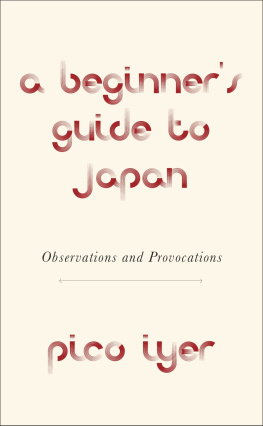
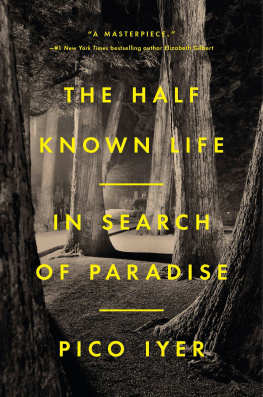
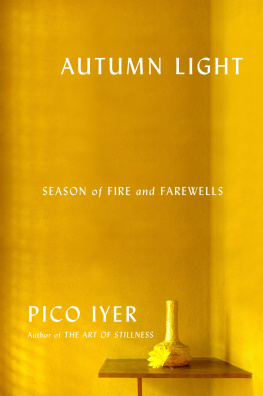

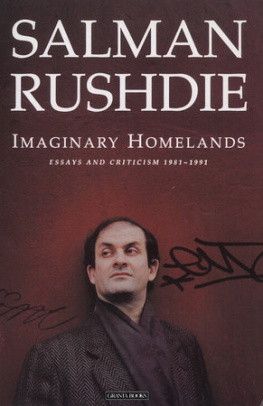



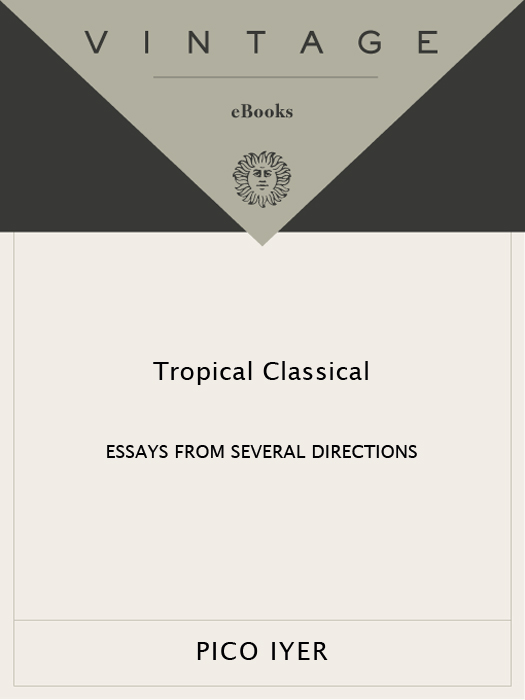

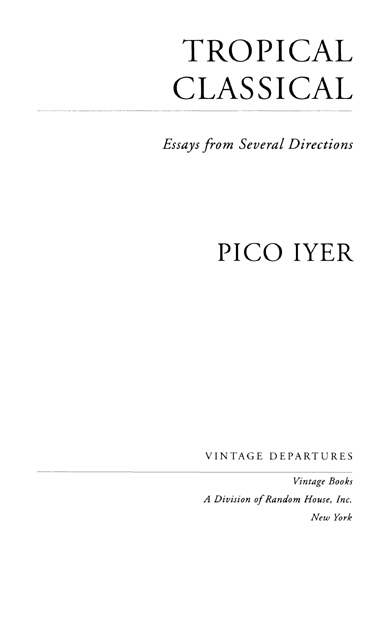
 FIRST VINTAGE DEPARTURES EDITION, JULY 1998
FIRST VINTAGE DEPARTURES EDITION, JULY 1998